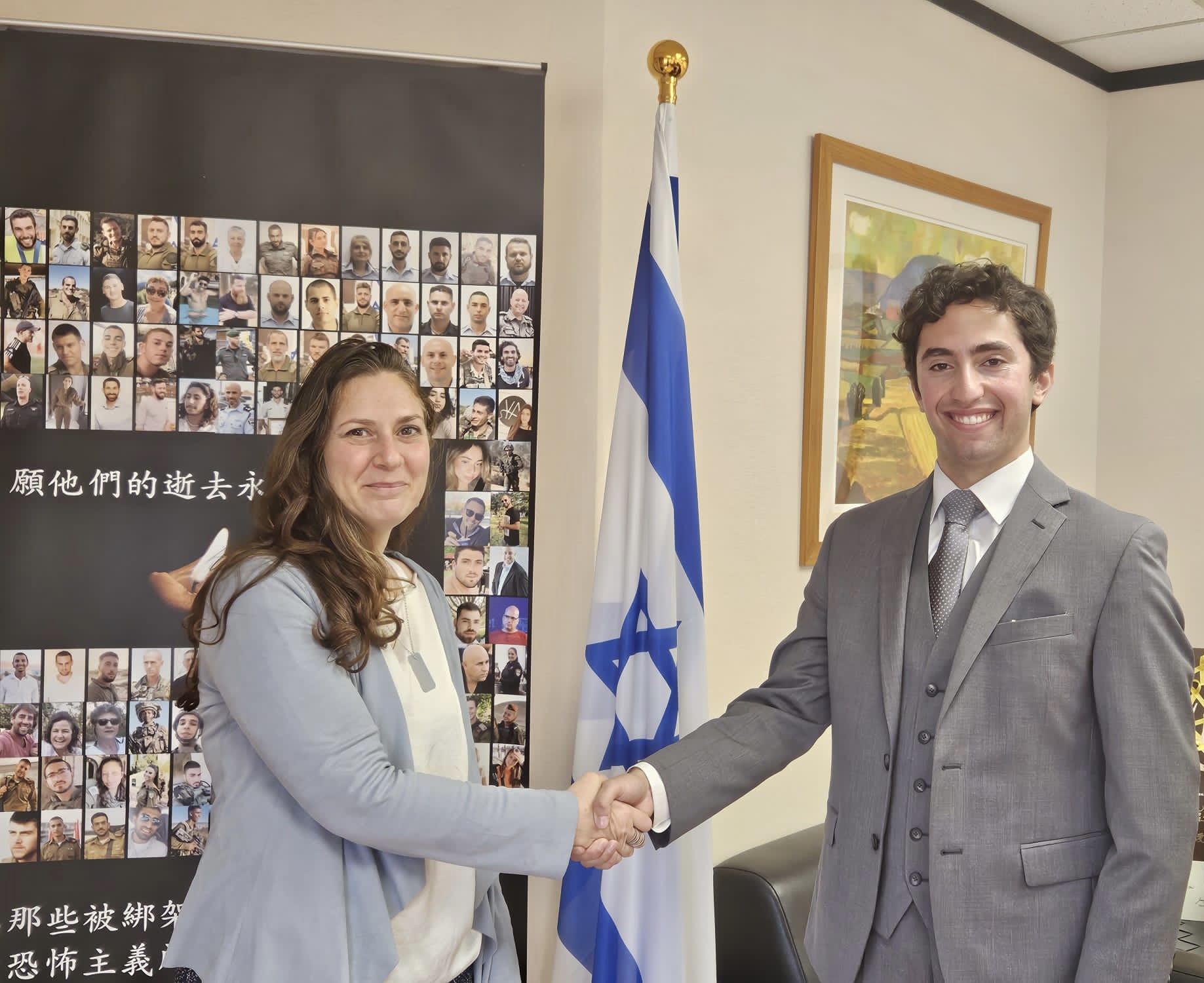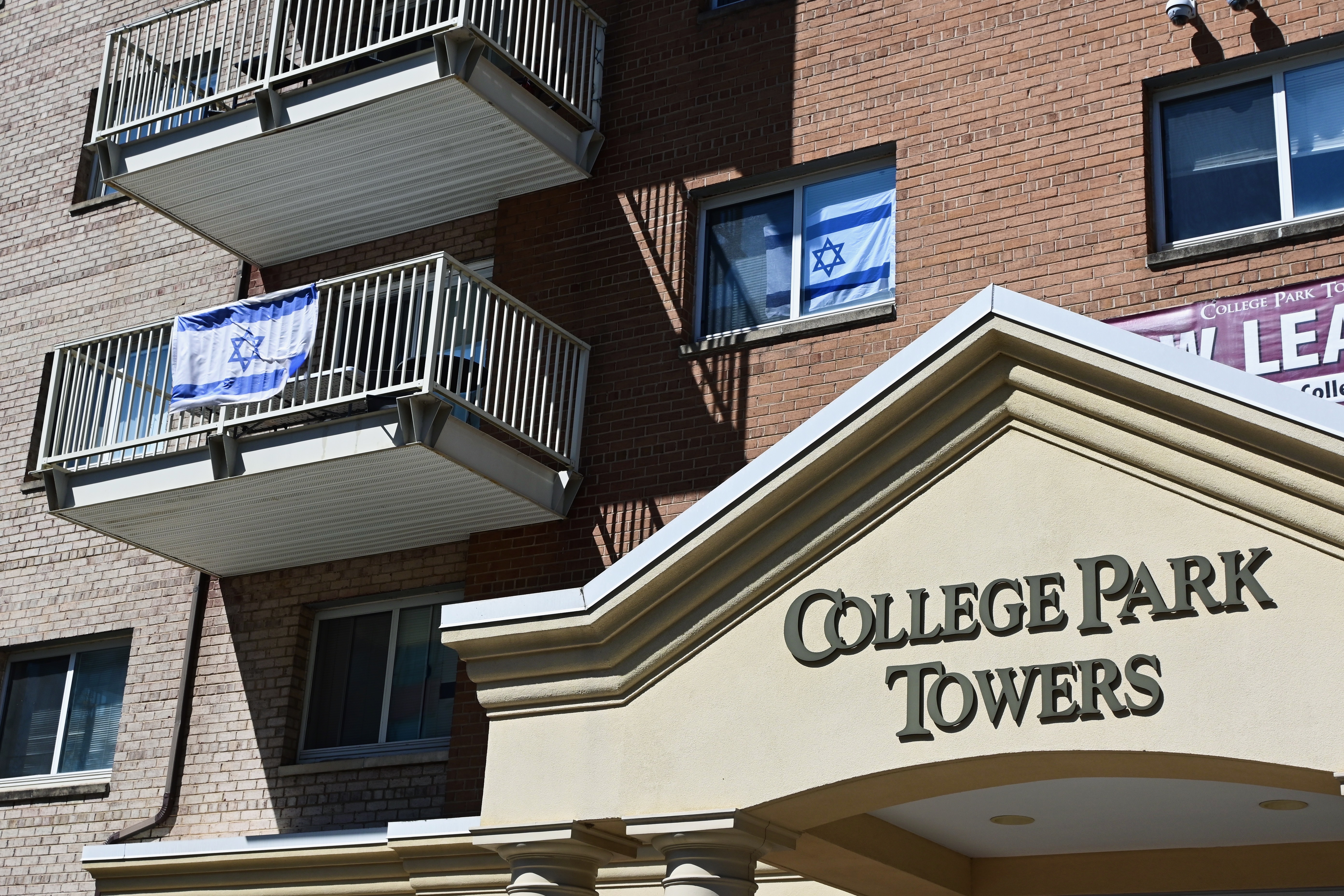By Blair Jackson, for the Mitzpeh, @blairacudda

In commemoration of the 20th anniversary of Israeli Prime Minister Yitzhak Rabin’s assassination, the Gildenhorn Institute of Israeli Studies (GIIS) hosted its annual Dubin Lecture as a discussion on Israeli-Palestinian negotiations, current crises and the future of the Middle East.
The event featured Aaron David Miller, former adviser to both Democratic and Republican secretaries of state, and Shlomo Ben-Ami, former Israeli foreign minister.
Professor Yoram Peri, GIIS director and Rabin’s former adviser, moderated the event.
“Every year the Dubin Lecture is an opportunity for students to hear from a renowned expert about current affairs in Israel and the Middle East,” said Samantha Levine, GIIS program coordinator. “We chose to focus on Yitzhak Rabin’s legacy 20 years after his assassination, partly because of Professor Peri and the Gildenhorns’ close relationships with Rabin.”
The Gildenhorn Recital Hall at the Clarice Smith Performing Arts Center was packed with about 200 students, teachers and visitors.
“I came to hear a nuanced conversation about details of the Israeli-Palestinian relation, especially current events,” said Eitan Kahn, a junior finance and English student.
The two speakers provided insight into the Israeli-Palestinian conflict so that students and visitors could learn from people involved in the peace negotiations in the 1990s and 2000s, Levine said. Both Miller and Ben-Ami agreed there was no end to the conflict in the near future because the current situation is not ideal and neither are alternative solutions.
The speakers also explained that the United States is not capable of solving the situation by itself.
“We’re stuck,” Miller said. “We can’t transform the region, and we can’t leave it.”
Yitzhak Rabin was a significant leader because he came at a time when the state was “ripe for change,” when Islam was rising and the Soviet Union was collapsing, Ben-Ami said. However, it is difficult to say whether Israel would be different had the assassination not happened. The peace process was already crippled by the time of the assassination, he said.
The speakers reiterated that the problem is essentially impossible to solve, regardless of the leader.
“I thought it was interesting how they were trying to map out how it would be if he wasn’t assassinated,” Alison Gaynor, a sophomore public health major, said.
Although the conflict is a huge one to discuss, there was still an emphasis on the importance of leadership.
“Leaders are critically important,” Miller said. “You need leadership, you need ownership and you need willful and skillful mediation.”
Unfortunately, there are no leaders currently helping the situation, Miller said. The United States does not have the capacity to deliver and it also should not be the sole mediator. There is a need for more “internationalization,” he said.
“They said you need two to three leaders to have progress and currently we have none. That interested me,” Taylor Friedman, a sophomore economics major, said.
While still on the topic of America’s role in the situation, Miller said the U.S. relationship with Israel is one reason why the problem endures. He said Americans’ positive image of Israeli people needs to change in order for there to be progress.
“I didn’t think he was going to say that,” Ben Sonnenberg, a sophomore history major, said. “I think there needs to be some tough love for the greater good to be prevailing.”
This event was meant to inform students both in the Israeli studies program and students in other programs, Levine said.
“For Israel studies students who already know a good amount of the history, it’s great to hear personal stories and anecdotes from the speakers about their experiences,” Levine said. “For those who haven’t taken Israel studies classes, this was a good introduction to what has happened in the region over the last 20 years or so.”
“Particularly given the violence that has occurred over the last couple of weeks, the speakers really brought the historical context into the present day,” she said.




